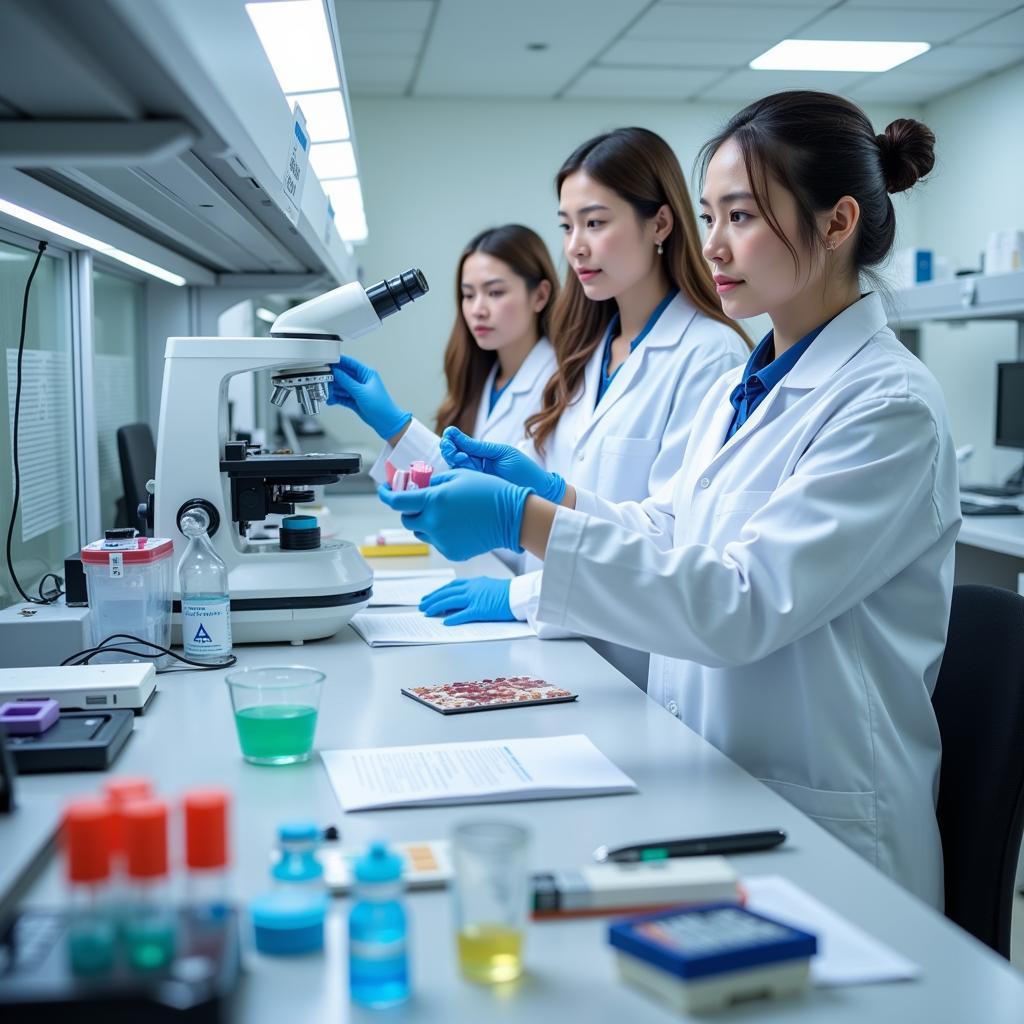The American Society Of Histocompatibility And Immunogenetics (ASHI) plays a crucial role in the complex field of transplantation and immunology. By promoting research, education, and ethical practices, ASHI strives to improve the lives of patients worldwide. This article explores the importance of ASHI and its impact on the medical community.
Delving into Histocompatibility and Immunogenetics
Histocompatibility, the compatibility between the tissues of different individuals, is vital for successful organ and stem cell transplantation. This compatibility is determined by a group of genes known as the human leukocyte antigen (HLA) system, which plays a critical role in the body’s immune response.
Immunogenetics, the study of the genetic basis of the immune response, focuses on how variations in HLA genes influence an individual’s susceptibility to diseases and response to therapies. ASHI provides a platform for scientists, clinicians, and other professionals to collaborate and advance the field of immunogenetics.
 ASHI Professionals at a Conference
ASHI Professionals at a Conference
The Crucial Role of ASHI in Transplantation
ASHI plays a pivotal role in ensuring the success of organ and stem cell transplantation by:
- Establishing standards for HLA typing: ASHI sets rigorous standards for HLA typing, a test that identifies the HLA genes of potential donors and recipients. Accurate HLA matching is crucial for minimizing the risk of rejection.
- Promoting research and education: ASHI actively supports research in histocompatibility and immunogenetics, fostering innovation in transplantation and immune-related disorders. It also provides educational resources and training programs to healthcare professionals, ensuring they stay abreast of the latest advancements.
- Advocating for ethical practices: ASHI establishes ethical guidelines for professionals working in the field, promoting responsible and ethical practices in research, testing, and patient care.
 Laboratory Performing HLA Typing
Laboratory Performing HLA Typing
The Impact of ASHI on Patient Lives
ASHI’s contributions have significantly improved the lives of countless patients through:
- Increasing transplant success rates: Standardized HLA typing and advancements in immunogenetics have led to higher transplant success rates, offering hope to patients with end-stage organ failure.
- Improving disease diagnostics: ASHI’s work in immunogenetics has broadened our understanding of immune-related diseases, leading to better diagnostics and treatment options.
- Enhancing patient care: By promoting ethical practices and supporting education, ASHI ensures that patients receive the highest quality care throughout their transplant journey.
Looking Ahead: ASHI’s Vision for the Future
ASHI continues to be at the forefront of innovation in histocompatibility and immunogenetics. Its ongoing efforts focus on:
- Advancing research: ASHI is committed to supporting groundbreaking research in areas such as personalized medicine, xenotransplantation, and the development of novel therapies for immune-related disorders.
- Expanding education and training: ASHI constantly updates its educational programs to reflect the latest advancements in the field, ensuring healthcare professionals have the knowledge and skills to provide optimal care.
- Promoting global collaboration: ASHI actively collaborates with international organizations to advance the field of histocompatibility and immunogenetics globally.
 Patient Receiving Transplant Consultation
Patient Receiving Transplant Consultation
Conclusion
The American Society of Histocompatibility and Immunogenetics plays a critical role in improving the lives of patients in need of organ or stem cell transplants. Through its dedication to research, education, and ethical practices, ASHI continues to drive advancements in the field, offering hope for a healthier future. For those seeking information and support related to transplantation and immunogenetics, ASHI stands as a valuable resource and advocate.
FAQs
1. What is the main purpose of HLA typing?
HLA typing identifies the HLA genes of a potential donor and recipient to determine compatibility and minimize the risk of organ or stem cell rejection.
2. How does ASHI contribute to disease diagnostics?
ASHI’s research in immunogenetics helps understand the genetic basis of immune-related diseases, leading to improved diagnostic tools and treatment strategies.
3. What are some of the ethical considerations in transplantation?
Ethical considerations include ensuring informed consent, allocating organs fairly, and protecting the privacy of donors and recipients. ASHI provides guidelines to address these considerations.
4. What is the role of ASHI in xenotransplantation?
ASHI supports research on xenotransplantation, the transplantation of organs from animals to humans, as a potential solution to organ shortages, while addressing ethical and safety concerns.
5. How can I get involved with ASHI?
You can visit the ASHI website to learn more about their work, membership opportunities, and ways to support their mission.
Need further assistance?
For immediate support, please contact our 24/7 hotline at 02043854663 or email us at [email protected]. You can also visit our office located at Khu 34, Bac Giang, 260000, Vietnam. Our dedicated team is here to assist you.
Explore more about:
- The impact of organ donation.
- The latest advancements in stem cell transplantation.
- The importance of ethical practices in medical research.